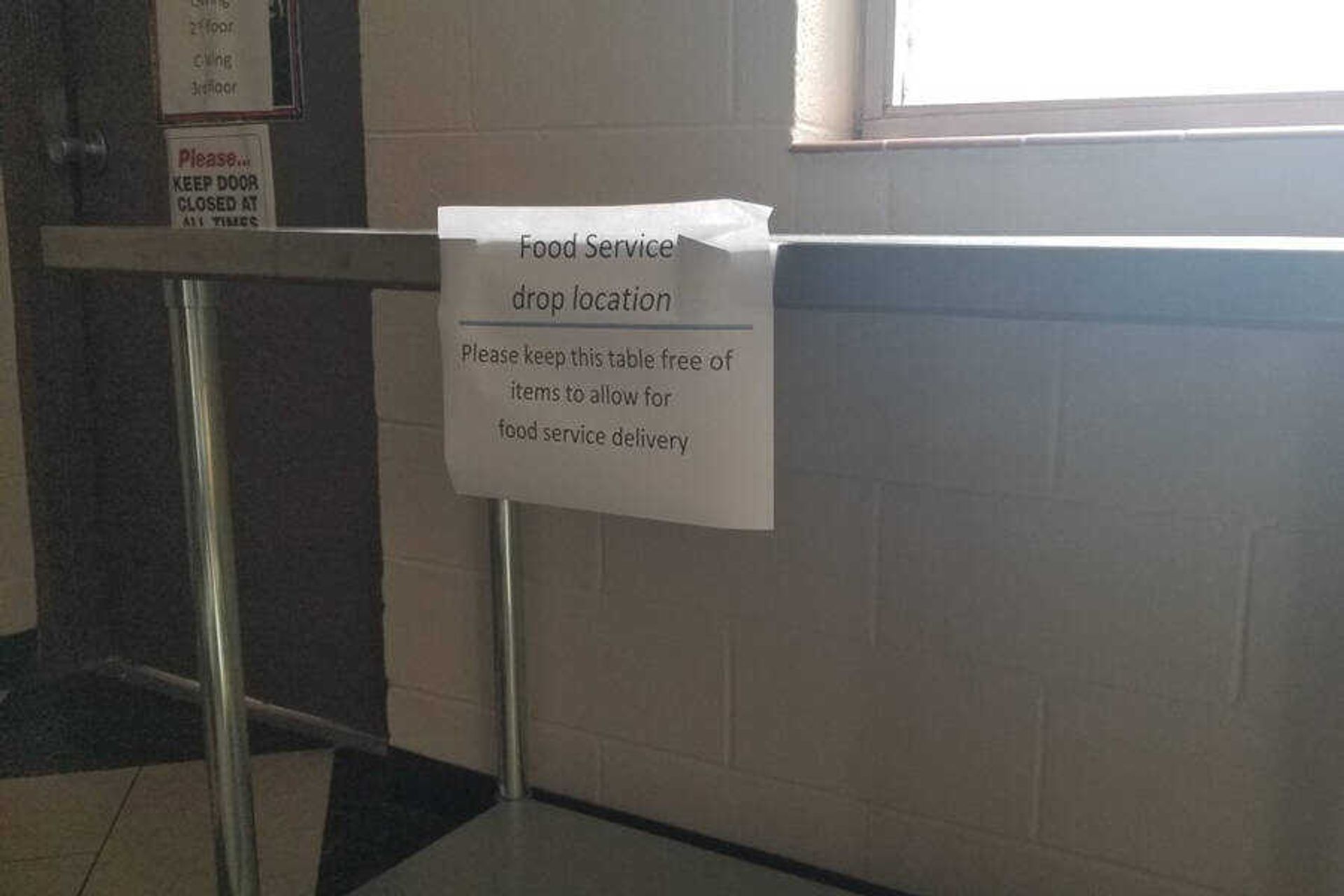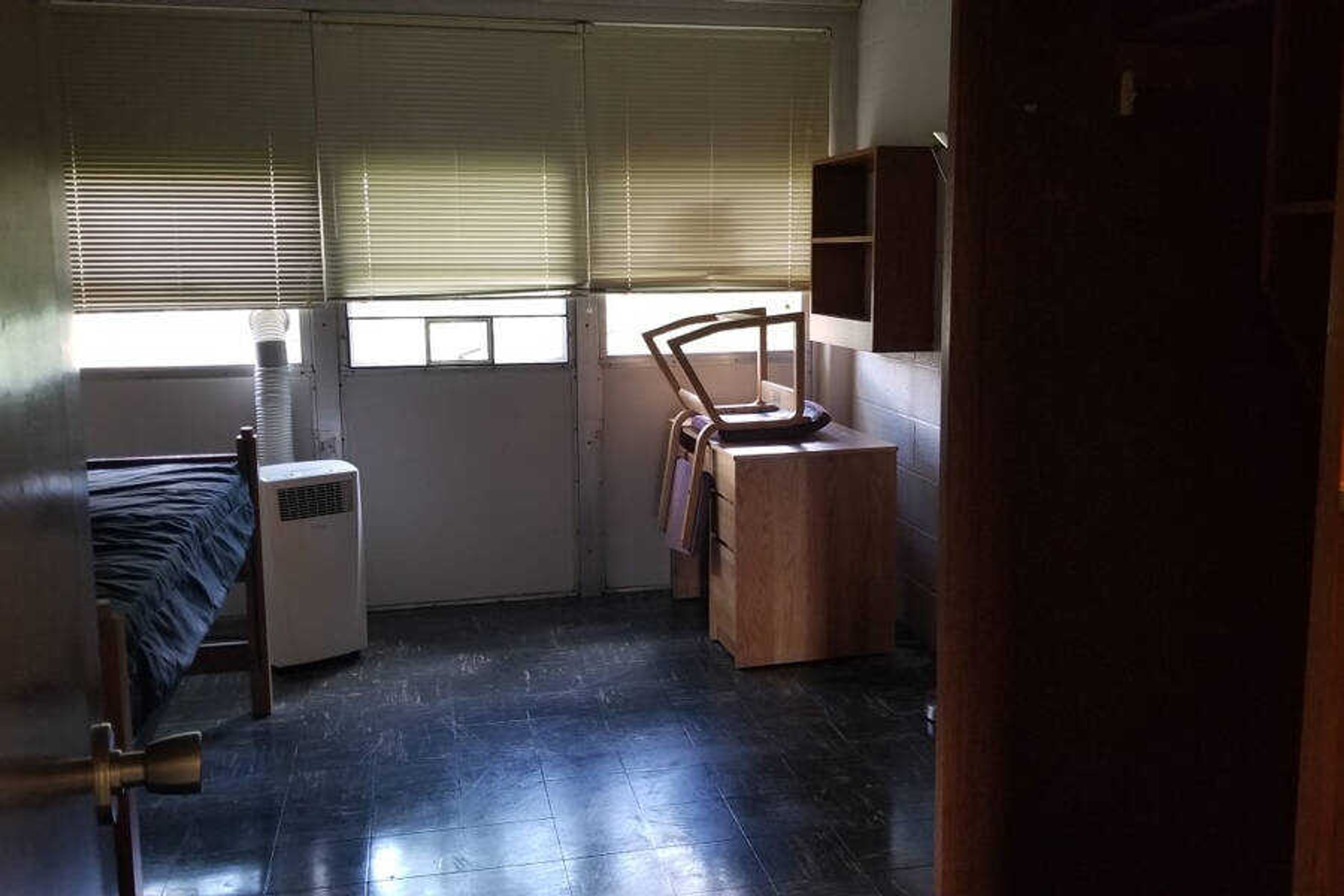As part of Southeast’s Protect the Nest plan, the university has repurposed the previously unused Dearmont Hall into transitional housing for quarantined students.
Associate Vice President for Student Life Bruce Skinner said there are two situations where students will be asked to quarantine: if the student is confirmed to have COVID-19 or if a public health official directs the student to be quarantined in Dearmont. Students who are merely at risk for contracting the virus will not be quarantined by Southeast officials.
The rooms in Dearmont will hold one person, with community style showers and bathrooms. Those facilities will be cleaned before and after students begin living in a wing. The school will provide cleaning supplies to students for their own spaces.
Three of the four wings in the building are outfitted to house students currently, and only two of those wings will be in use at a time. The wing not in use will be cleaned and prepared to be reused.
Skinner said the building can hold up to 135 students with the current set up, but he does not believe they will ever have more than 135 students in quarantine at once. There is a back up plan if worse comes to worst.
“Should we get to a point where we have filled two wings to capacity, and we are now beginning to look at the third wing, what we would do as an institution is look at bringing the fourth wing online to add another 40 beds,” Skinner said. “The second thing we could do is begin to cohabitate people, meaning if two roommates were COVID positive, they would be housed together.”
Since quarantined students will not be permitted to attend in-person classes, they will have to arrange a plan with their instructors to continue course work.
“Part of that depends on how well a student feels,” Skinner said. “Some students come down with COVID and feel fine and want to continue their course work, others don’t want to do much other than rest, so that would be figured out between students and their faculty members.”
If a student is asked to quarantine, they should alert the Dean of Students and their instructors so a plan can be created.
Students in Dearmont will have access to university services like mail and Wi-Fi, but their meals will be handled differently to accommodate for social distancing guidelines.

“[Chartwells] will deliver food to Dearmont at locations outside of each floor. They will deliver the food there at a predetermined time, and when the Chartwells’ employee leaves, the students can come and grab their food,” Skinner said.
No faculty or resident assistants will be stationed in Dearmont, but a hall director will be living in Vandiver Hall to assist with transitional housing. A Southeast staff member will check in on each student every day, but the process will be done through Zoom, email or phone. Any medication the student may receive will be handled between the student and their health care provider. Should they need help acquiring the medication, the University will work with local pharmacies to have it delivered.
To make sure students are comfortable while in quarantine, the university will allow them to decide which quarantine option they go with.
“We’re not telling the student, ‘You must go home, we don’t have any way to help you.’ We’re just saying if that's an option for you, you might be more comfortable at home,” Skinner said. “I spoke to a parent the other day who said if their child were COVID positive, they may consider putting them in a hotel.”
More information can be found in the Protect the Nest plan, including how transitional housing will work. For more information on how to get tested and testing procedures, contact the Campus Health Clinic at (573) 651-2270 or your medical provider.





